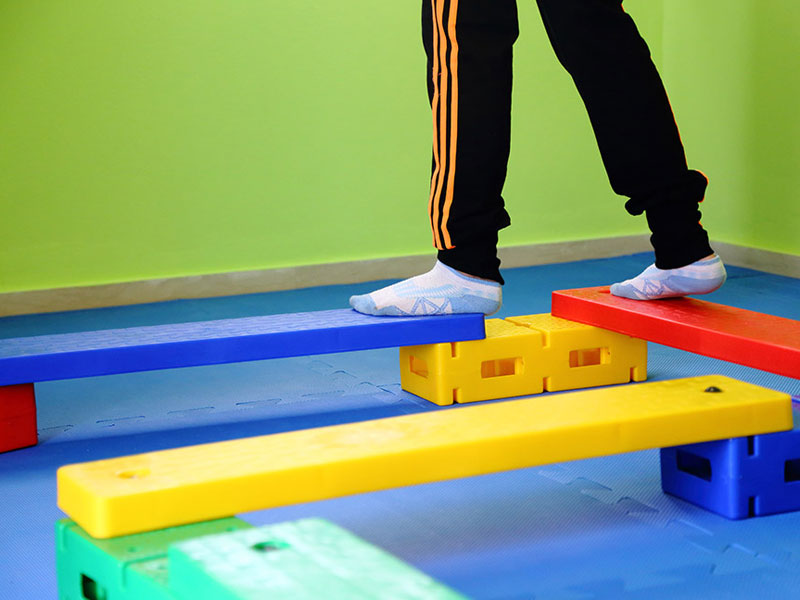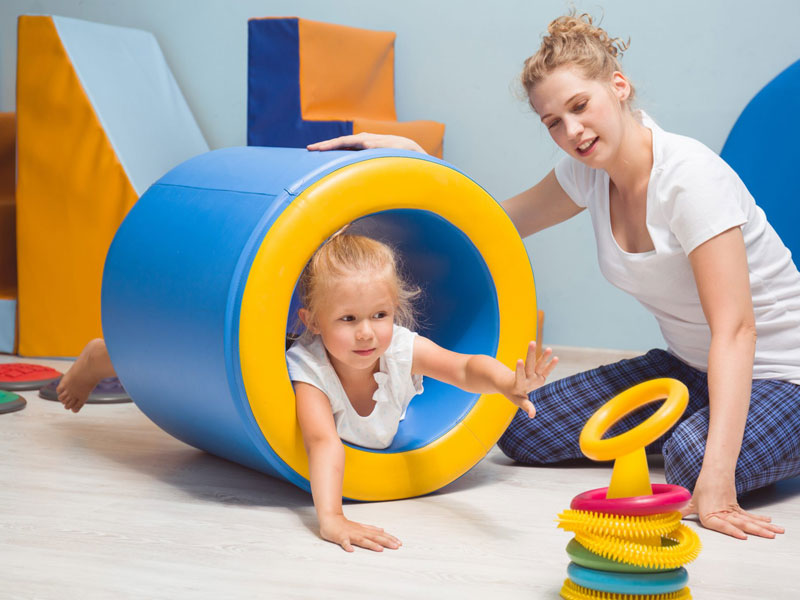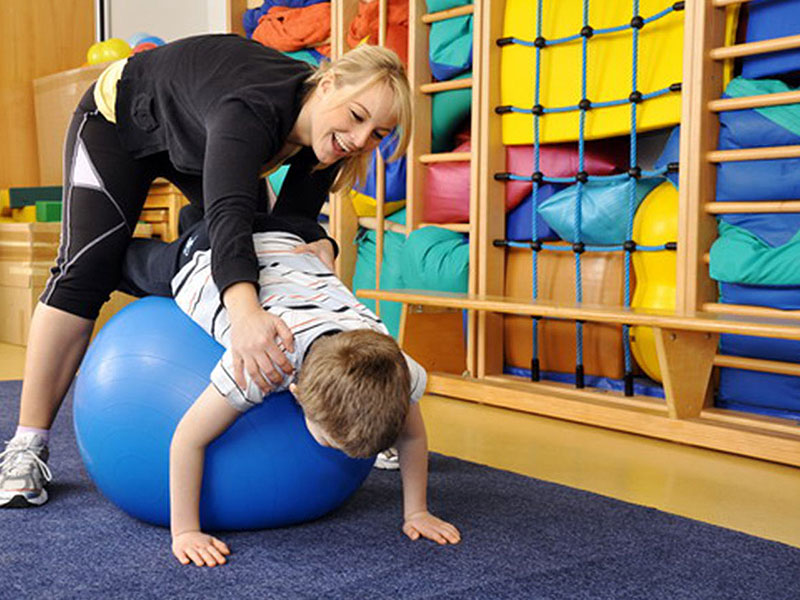
Parents worried about the motor skills their child needs to develop need proper information on what occupational therapy is, how it can help their child, and when they really need to consult an occupational therapist.
Occupational therapy refers to the use of intentional activities to help people of any age with physical, mental or mental impairments, whatever their reason, to develop skills to perform independent daily activities.
Like all age groups, so does occupational therapy, with its emphasis on engaging in day-to-day work. In order to perform a task, a child must first choose it, that is, emotional involvement is needed. This is either achieved automatically when the child has an active internal motivation, or is initially directed by the therapist, looking forward to developing an internal motivation. After choosing a project-activity comes the organization. At this point all cognitive-perceptual skills such as concentration, memory, classification, space-time concepts, imagination, etc. are required. to now get the project done.
Execution requires effective motor, neuromuscular and sensory organization, which without this child cannot complete the activity he has chosen and organized. So at any stage (selection - organization - execution) there is a difficulty, essentially preventing the production of a project. That's where occupational therapy works! The process of improving a child's skills in any of the above three stages is called therapy. Many times, however, because the child lives in an environment that affects them, occupational therapy adapts that environment to the child's abilities. So it can more easily perform the activities it has selected and organized.
But what are the daily tasks of a child and how can Occupational Therapy help?
The dominant task in children's lives is play, (in all its forms sensory, constructive, mimetic, symbolic, solitary, group), and it is therefore the foremost and most central tool of child therapists. Other daily tasks include dressing-stripping, feeding, toileting, organizing and utilizing leisure time, social participation, education, obligations to the participants (home, school, clinic, gym, etc.). .)
Below I have listed 3 questionnaires about when a child, depending on their age, has acquired some skills, developed by the American Occupational Therapists Association.
If your child has 3 or more of the following difficulties, you should contact an occupational therapist who will guide and advise you exactly what your child needs and / or advise on what you can do in addition. parents at home.
Questionnaire for parents with infants and children 0-2 years old
- Easy to surprise (normal for 0-3 months)
- Reduced muscle tone
- When she is crying she cannot stop easily, restless
- Can not bring both hands together and clap or do knock two games together
- It is difficult to turn a face - roll (roll), cough sitting or standing
- Produces sounds with difficulty
- Does not explore the environment
- He cannot build a tower with bricks
- He often has his hands closed (longer than 6 months)
- He doesn't like being face-to-face
- Does not like contact with water
- Stretches when holding it, he doesn't like it
- He doesn't like changing diapers or clothes
- Difficulties with breastfeeding and generally with eating and transitioning to solids
- She has difficulty sleeping, she cannot rest
Questionnaire for parents with preschool children (3-5 years old)
- Refuses to play with toys his age or self-serve
- Reduced muscle tone, seems weak
- Clumsy, it falls easily and often
- Falls on others or on furniture and has difficulty in getting it calculates the position of his body in relation to the environment
- He easily breaks his toys
- He does not like to jump, swing or climb high objects
- It is difficult to draw in lines, to puzzle or to draw cuts with scissors
- The development of speech and speech has been delayed
- It is hyperactive, it cannot rest
- He doesn't like to be funny
- He doesn't like bathing, hair and nail cutting, hugs and kisses
- Is hypersensitive to odors, flavors, noises or touch
- Avoid climbing on playground equipment
- She has difficulty sleeping
- Has difficulty eating, is overly dirty or does not eat some basic foods
Questionnaire for parents with preschool children (6-12 years)
- Cannot concentrate or concentrate too much and cannot move on to the next activity
- Reduced muscle tone, tends to rest his head on his hands when sitting at his desk
- It takes more practice than other kids to learn new things
- Invert letters and numbers such as e and 3, not leaving plenty of space between letters or words when writing
- Easily breaks his pencils or writes with too much pressure on him paper
- Dislikes jumping, swinging or climbing, has difficulty with balance, and / or is afraid of lifts and escalators
- He doesn't like writing, he gets tired easily during school work
- It is difficult to follow complex oral instructions
- It is hyperactive, it cannot rest
- Has reduced confidence
- He does not like swimming, bathing in the house, cutting hair and nails, kissing and hugging
- Is hypersensitive to odors, flavors, noises or touch
- He doesn't like being around people or touching him (in the queue for a bus, movie or market)
- Avoid gym or sports
- He has difficulty making friends of the same age, preferring to play with adults or younger children.
Back


